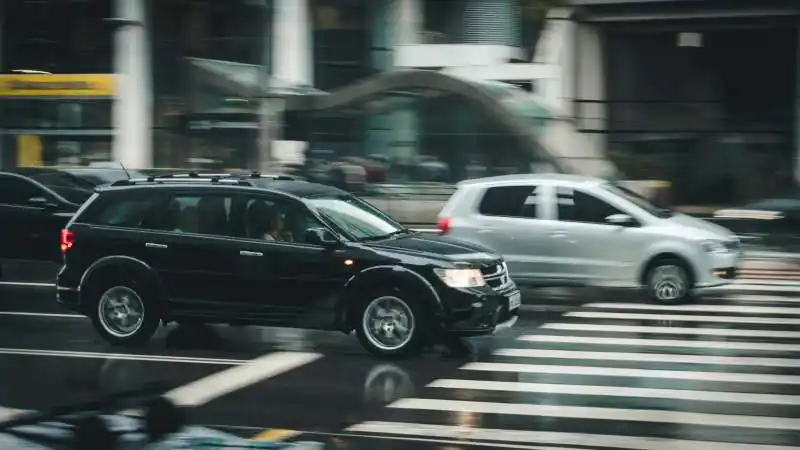For decades, the George Massey Tunnel has been a critical artery linking Richmond to Delta and the southern municipalities of Metro Vancouver. Originally opened in 1959, the four-lane tunnel beneath the Fraser River was built for a much smaller population and traffic demand. Today, however, the Massey Tunnel serves over 80,000 vehicles daily, creating a choke point for commuters, businesses, and transportation. The current state of congestion has pushed forward the long-debated project to replace the aging tunnel. But is this replacement truly the solution Vancouver needs to ease its transportation woes?
The growing demand for infrastructure improvements around the Massey Tunnel has been evident for years. Drivers traveling through this corridor face constant gridlock, and accidents frequently exacerbate the delays. The tunnel has also raised safety concerns due to its narrow lanes, frequent maintenance requirements, and vulnerability to seismic activity.

Local governments and transportation experts agree that action is necessary, but the question of how best to solve the problem has been the subject of debate. The provincial government initially proposed a 10-lane bridge to replace the tunnel, but after public pushback and concerns from surrounding municipalities, the plan shifted toward a new eight-lane immersed tube tunnel. The new tunnel, set to be completed by 2030, will include dedicated lanes for public transit, improved cycling and pedestrian paths, and seismic upgrades to withstand earthquakes.
“This replacement is long overdue. The traffic has become unbearable,” said Jordan Davis, a tow truck operator with City Tow Truck, a Richmond-based towing company, who frequently attends to breakdowns and accidents in the Massey Tunnel. “When there’s an accident in the tunnel, it causes massive delays because there’s no shoulder or safe place to pull off. The new tunnel should make a big difference by reducing congestion and improving safety.”
The planned replacement of the Massey Tunnel promises several key improvements, but critics argue that simply increasing road capacity will not solve Metro Vancouver’s deeper transportation issues.
Richmond Mayor Malcolm Brodie has voiced concerns about the new tunnel, stating that while the replacement is needed, it must be accompanied by a more comprehensive approach to reduce car dependency. “More lanes and bigger roads will only lead to more traffic unless we focus on building robust transit systems and supporting alternative modes of transport,” Brodie said in a recent interview. He emphasized the need for expanded public transit options, particularly in fast-growing suburban areas like Delta and Surrey, to alleviate the pressure on major roadways like Highway 99.
This sentiment reflects a broader debate in urban planning circles about induced demand—the phenomenon where increasing road capacity leads to more cars on the road, which in turn can recreate the very traffic problems the expansion aimed to fix. Proponents of the replacement tunnel, however, argue that without immediate action, congestion will only worsen.
“The key difference with the new Massey Tunnel is the inclusion of dedicated transit lanes,” said Davis. “This could encourage more people to use buses or future transit options, which should ease some of the load off the main lanes for cars and trucks.”
Environmental Concerns and Sustainability: In addition to traffic and safety improvements, the replacement project also aims to address environmental concerns. The existing tunnel was constructed in an era when environmental impacts were not a priority, but modern infrastructure projects must meet stricter environmental standards. The new tunnel will incorporate features to minimize impacts on the Fraser River and surrounding ecosystems. This includes using more energy-efficient lighting and ventilation systems, as well as measures to protect fish habitats and water quality.
Despite these efforts, environmental groups remain cautious. Many argue that any large-scale infrastructure project focused on expanding car traffic contributes to long-term environmental degradation. Instead, they advocate for stronger investments in sustainable transportation options like light rail, electric buses, and bike infrastructure.
Impact on Commuters and Businesses
For commuters and businesses, the tunnel replacement will bring both short-term disruptions and long-term benefits. During construction, traffic diversions and increased travel times are expected, which could frustrate drivers who are already dealing with daily congestion. However, once completed, the new tunnel promises to provide a smoother, safer commute, potentially saving significant time for those traveling between Richmond, Delta, and Surrey.
Local businesses reliant on freight transport will also see positive changes. The current tunnel's limited clearance poses challenges for large trucks, forcing them to take alternative routes. The new tunnel will accommodate larger vehicles, facilitating faster and more efficient freight movement.
“The delays caused by breakdowns or accidents in the current tunnel affect everything from delivery schedules to emergency services,” Davis explained. “A modern tunnel will reduce these bottlenecks and make the commute more reliable for everyone.”
The replacement of the Massey Tunnel represents more than just a road expansion—it’s a pivotal moment for the future of transportation in Metro Vancouver. With the region’s population continuing to grow, there is a pressing need to balance infrastructure upgrades with sustainable, long-term solutions.
Mayor Brodie’s call for improved public transit aligns with Metro Vancouver’s broader vision to create more connected, green communities. Projects like the extension of the SkyTrain into Surrey and Langley, along with bus rapid transit corridors, will need to work in tandem with the new tunnel to ensure that Metro Vancouver doesn’t simply replace one traffic bottleneck with another.
Ultimately, the Massey Tunnel replacement is a significant step forward, but it’s only one piece of the puzzle. As the city strives to build a more efficient and environmentally sustainable transportation network, it will require careful planning, collaboration, and ongoing investment in diverse transit options.
As Davis concluded, “A new tunnel will help, but if we don’t think about the bigger picture of how people move around this city, we’re just going to be stuck in traffic again a few years down the road.”
###
For more information about City Tow Truck, contact the company here:
City Tow Truck
Contact
(604) 265-5888
richmond@citytowtruck.com
12100 Riverside Way Suite 119 Richmond, BC V6W 1K5




